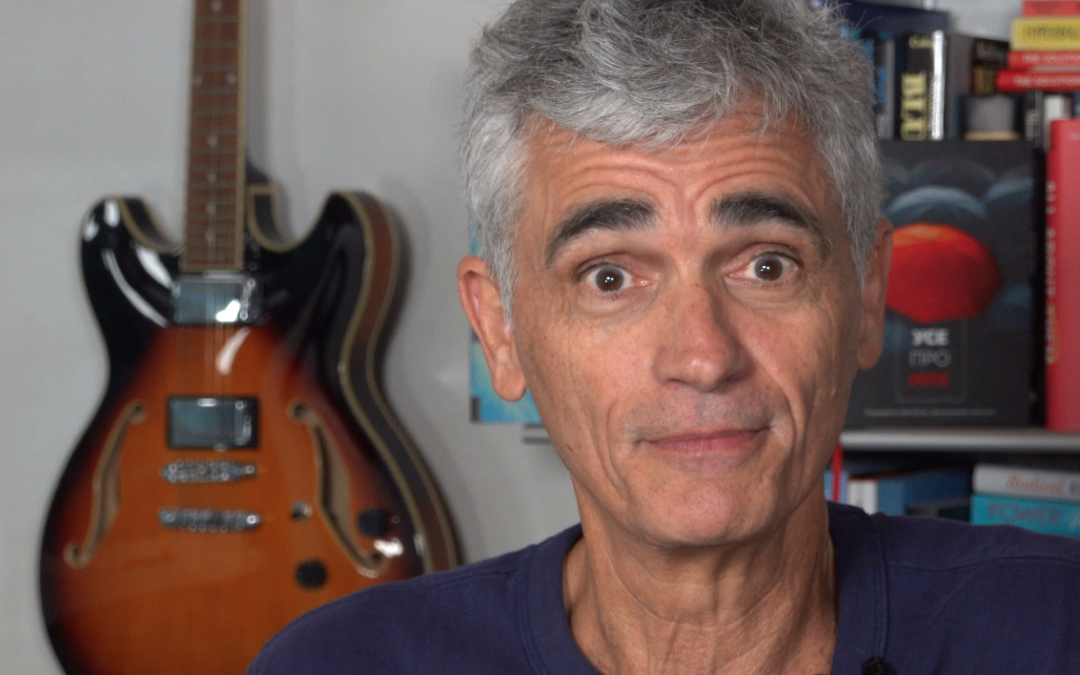Click HERE to watch the video.
Do you remember the first time you rode a bicycle all by yourself?
I remember when I did.
I hoped up on the shiny blue two-wheeler I got for my birthday and my dad grabbed the saddle and ran alongside me while I furiously pumped my legs and struggled to control the wobbling handlebars.
At some point my dad quietly let go of the seat and let me ride on my own. I shot down the street without a care in the world. That is until I looked back and realized my father wasn’t holding me steady — which is when the wobbly handlebars won the battle, and I went crashing to the ground.
It was almost exactly the same story some 30 years later when I taught my son to ride his bike. He fought with the handlebars and wobbled along and spent some time sprawled out on the pavement. But before long, Danny figured out how to ride by himself. All of a sudden, he could get to friends’ houses or the park on his own.
He was free.
A few years later I taught my daughter to swim. She’d stand on the side of the pool while I bobbed in the water just a few feet away from her. With an excited, “Ready Daddy?!” she’d hurl herself into the air, splash down in the water, and lead a trail of bubbles straight to the bottom until I’d dive down to grab her and bring her up to the surface. After a big breath and an even bigger smile, she’d push the wet curls out of her face and squeal, “Again Daddy!!” and we’d repeat the whole process over and over.
Eventually Ali figured out the secret to buoyancy and could splash into the pool and dogpaddle all the way over to me. Now she could swim at friends’ houses and run along the surf at the beach without worrying about touching the water.
Her life was never the same again.
That instant where everything changes is what Malcolm Gladwell calls “The Tipping Point” — that momentary catalytic mechanism that introduces you to a whole new world of opportunity and possibility.
Steering a bike without your parent holding onto the seat and swimming on the top of the water instead of sinking to the bottom require both a leap of faith and some new skills. But in both cases, figuring out the counterintuitive solution makes all the difference and changes everything.
Building your brand is just like that. Once you create a compelling brand you reach your own personal tipping point, and that’s when everything changes.
The big question is: How do you do that?
Ahhh, THAT’S where the branding process becomes counterintuitive and requires some new skills, too.
Most average marketing and branding talks all about the product. How many locations the retailer has; how powerful their computers are; how long they’ve been in business; se habla Español, etc. etc. Whatever.
The problem is that nobody cares about those things until they’re interested in your product or your service in the first place.
Don’t get me wrong – all of your product attributes are critical. But they’re merely RTBs (Reasons To Believe). They are of absolutely no interest or consequence to your potential customer until that potential customer is interested in your product.
- I don’t care how many bottles are on the wine list of a restaurant I’m not going to visit.
- I don’t care how inexpensive a pair of running shoes are if I don’t want to try them on.
- And it doesn’t matter how many lawyers work at a firm I will never retain.
The secret to building a powerful brand can be summed up in three words: All About Them. Simply put, make your brand resonate with who your potential customer is and what they care about. Even better, make your brand help them feel good about themselves and they’ll be all ears when you share your wonderful RTBs.
Just like learning how to swim or learning how to ride a bike, learning how to make your brand All About Them changes everything. And once you figure your own catalytic mechanism, nothing will ever be the same again.
Just ask my kids.

